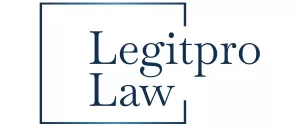- within Consumer Protection topic(s)
- in United States
- within Consumer Protection topic(s)
- with Finance and Tax Executives
- in United States
- with readers working within the Law Firm industries
Introduction
In July 2025, the Food Safety and Standards Authority of India (FSSAI) released a statement after a confidential meeting with leading food delivery services including Swiggy, Zomato, Amazon, and Flipkart1. The regulatory body highlighted significant failures in food safety compliance among e-commerce companies: vendors operating without valid FSSAI licenses, food items featuring misleading or incomplete labels, and a consistent increase in consumer complaints about expired or unverified products. Modern platforms like Zepto, which function in the rapid commerce sector, have also faced scrutiny regarding their fulfilment hygiene, dark store licensing, and transparency in shelf-life information. The message was clear that regulators are transitioning from mere advisories to actual enforcement.
Simultaneously, the Central Consumer Protection Authority (CCPA) has ramped up its scrutiny of digital commerce, particularly focusing on the eradication of so-called "dark patterns" design strategies that influence consumer decisions. Frequent infractions involve forced consent, concealed pricing, sneak-in fees, and misleading urgency notifications. In the meantime, the Legal Metrology Department has intensified its efforts against non-compliant product listings, especially where essential label information such as MRP, net quantity, expiry date, or country of origin is either absent or inaccurately presented.
If you're a start-up gearing up to launch a quick-commerce or food e-commerce platform in India, compliance can no longer be regarded as a minor issue. Following the latest FSSAI notifications, CCPA guidelines, and Legal Metrology regulations is not merely about fulfilling legal obligations, it is essential for establishing enduring trust and credibility. This article outlines the essential responsibilities, industry-specific regulations, and operational controls that founders and executive teams must incorporate from the outset.
FSSAI Licensing and Registration Requirements
Any entity that produces, stores, distributes, or retails food products, whether directly or via third-party vendors, is legally obligated to secure a valid license or registration in accordance with the Food Safety and Standards Act, 20062. Inventor-led platforms such as Big Basket or Zepto are required to obtain a Central FSSAI License that encompasses each dark store, warehouse, and logistics centre. Marketplace models must ensure that each third-party seller's FSSAI license is verified and prominently displayed.
Recent inspections have uncovered that numerous platforms were onboarding sellers without sufficient due diligence, leading to the listing of products lacking a valid license or clear traceability. Consequently, a start-up must establish a comprehensive vendor onboarding process that guarantees all necessary documents are collected, verified, and monitored for renewal. FSSAI also promotes for the display of license numbers alongside each listing and regular vendor audits to confirm that compliance is maintained continuously, rather than being a one-time assessment.
Shelf-Life, Labelling, and Food Safety
The advisory issued by FSSAI in December 2024 has established a requirement for all food products sold online to possess a minimum of 30% remaining shelf life at the time of delivery3. This mandates that perishable items such as dairy, snacks, and beverages must be automatically flagged and removed from listings once they breach this limit. Platforms are also required to replicate the physical label of the product in their online listings. This comprises vital information such as net quantity, nutritional information, ingredient lists, allergen warnings, expiration dates, and any health or nutrition claims. On May 28, 2025 FSSAI released the notification in extension of The Food Safety (Labelling and Display) Regulations, 2018, prohibiting misleading phrases such as "100% natural" unless backed by scientific evidence4. Start-ups need to invest in backend infrastructure and listing controls to guarantee that all digital information is in precise alignment with the labels on the packaging. Moreover, platforms are obliged to implement protocols for product recalls. In instances of contamination or regulatory interventions, affected products should be promptly removed from listings, with notifications sent out to both consumers and relevant suppliers.
FSSAI's 2025 Food-Grade Packaging Norms- In early 2025, FSSAI implemented more stringent regulations regarding food packaging safety, reclassifying specific packaging materials as "critical" due to their possible effects on food quality and consumer health5. These revised standards are applicable to all food enterprises, including e-commerce food platforms that manage pre-packed or processed food products. According to the new guidelines, businesses are required to ensure that all packaging materials utilised such as plastics, laminates, coatings, and containers adhere to food-grade safety standards and do not leach harmful chemicals during storage, transportation, or contact with food. The regulations highlight the importance of migration testing and stipulate that packaging must be certified by accredited laboratories as safe for its intended use.
Eliminate Dark Patterns in UX Design
In 2023, the CCPA published extensive guidelines outlining 13 misleading user interface practices, commonly known as "dark patterns.6" These encompass schemes such as artificial urgency (for instance, countdown timers that restart), hidden additions to shopping carts, undisclosed or belated charges (drip pricing), and bait-and-switch methods. The CCPA has clarified that these practices are deemed unfair trade practices under Indian consumer law. On June 7, 2025, the CCPA released a public advisory directing all e-commerce platforms to conduct self-audits for dark patterns and to avoid any deceptive UI tactics7. All e-commerce platforms, including quick commerce entities, are directed to perform a comprehensive self-audit within three months following the issuance of the guidelines, eliminate any misleading design features, and provide a formal compliance declaration. Platforms that persist in engaging with deceptive UI tactics such as coercive consent, disguised advertisements, or automatic opt-ins may face penalties for participating in unfair or misleading trade practises.
Transparency & Disclosures
In accordance with the Consumer Protection (E-Commerce) Rules, platforms are required to prominently display all vital information: the official legal name of the company, its registered office, contact information, PAN, and GSTIN, product specifics (price breakdown, shipping/handling or packing fees, country of origin) and comprehensive terms (return/refund/exchange policy, delivery, and payment methods). Importantly, all packaged food products must exhibit the same labelling information online that is present on the physical package. The Legal Metrology (Packaged Commodities) rules explicitly mandate that listings of e-commerce items must include the MRP, net quantity, manufacturing/packing date, expiry date, country of origin, and customer service information.8 (For instance, the 2017 amendment to the Packaged Commodities Rules requires that online sellers display MRP, expiry date, and customer-care details on food labels.) This helps to mitigate "information deficit" complaints.
Fair Business Practices
E-commerce platforms are obligated to maintain transparency and fairness in all business activities. Within India's consumer protection framework, practices like deceptive discounts, misleading advertisements, fake reviews, misrepresentation of stock, undisclosed surcharges, and hiding expiration dates are expressly forbidden. For instance, promoting "limited time offers" without a genuine time limit, using pre-checked consent boxes, or imposing cancellation fees while sellers face no equivalent penalties are all considered unfair trade practices. Moreover, if a platform grants preferential visibility to select sellers in search results or rankings, it must clearly inform users about this treatment. Equal treatment for sellers and consumers is an expectation of regulation—not merely a design option. Start-ups must craft consumer journeys that provide genuine choices and clear communication. Checkout screens should clearly present all charges, return/cancellation policies, and optional services. Any ranking algorithms that favour sponsored listings must reveal the nature of that preference.
Designated Officers & Grievance Redressal
Businesses are required to designate a Grievance Officer (with email/contact information available on the website/app) as well as a Nodal Officer for compliance purposes. The Grievance Officer is mandated to acknowledge any consumer complaint within 48 hours and to resolve it within one month. This requirement is essential: every platform must provide an accessible complaint channel that adheres to these timeframes.
Trained Delivery & Hygiene
The FSSAI emphasizes that personnel involved in last-mile delivery must receive training in food safety protocols. This covers education on safe handling, maintaining appropriate temperatures (including cold-chain requirements), personal hygiene (such as wearing clean uniforms, practicing hand-washing, and using gloves), and proper packing methods. Importantly, delivery staff must be trained to transport food items separately from non-food items (like personal care products or cleaning supplies) to prevent contamination. Delivery platforms should establish training programs and standard operating procedures to ensure that every delivery agent adheres to these hygiene standards.
Zoning, Trade Licensing, and Miscellaneous Approvals
The strategy for locating dark stores extends beyond mere operational considerations as it's a vital compliance requirement. Operating in residential or mixed-use areas without the necessary permissions can lead to sealing orders or sudden shutdowns, as highlighted by recent enforcement actions. While local municipal regulations differ, every fulfilment centre must comply with zoning laws from the very beginning. In addition to zoning, founders must obtain essential statutory approvals, such as Shop and Establishment Licenses for each location, fire and health clearances as required by local food authorities, and trade licenses from municipal agencies. These approvals are far from trivial, they represent regulatory legitimacy and ensure operational safety. The Zepto incident, where dark stores were scrutinised for violating zoning regulations, emphasizes the necessity of conducting comprehensive due diligence prior to signing any lease agreement. Implementing a structured compliance checklist for site selection can mitigate risks, prevent community backlash, and guarantee smooth operations.
Final Word
Launching a quick-commerce or food e-commerce platform in India has evolved beyond mere speed, variety, and convenience, it now requires weaving compliance into the core of the business model. The regulatory landscape has transitioned firmly from mere guidance to strict enforcement, meaning that any error, whether it's improper labelling or deceptive design practices, poses both reputational and financial hazards. Entrepreneurs who regard compliance as an afterthought face the risk of significant disruptions and a decline in consumer trust.
For entrepreneurs, making early investments in legal frameworks, obtaining necessary licenses, establishing standard operating procedures, and implementing platform governance will not only help sidestep regulatory fines but also elevate your platform into a reputable and trustworthy brand. Compliance is no longer something to merely acknowledge infact it has become a fundamental component for establishing credibility, sustainability, and scalability. In this transformed e-commerce landscape, regulatory diligence is not an obstacle to growth rather, it serves as the foundation for lasting success.
Footnotes
1. FSSAI. (2025). FSSAI Reinforces Stringent Food Safety Norms for E-commerce Platforms across India. In Press Release [Press-release].
2. Food Safety and Standards Act, 2006. (n.d.). Https://fssai.gov.in/upload/uploadfiles/files/Chapter5.pdf.
3. Food Safety and Standards Authority of India. (2024). Advisory for E-commerce Food Business Operators (FBOs) on Strengthening Food Safety Compliance.
4. FSSAI Advisory. (n.d.).
https://fssai.gov.in/upload/advisories/2025/05/6837041871bc1Advisory%20-%20100_%20claim.pdf.
5. FSSAI Order, 2025. (n.d.). https://www.fssai.gov.in/upload/advisories/2025/04/67ee5c2f2be74Order_Revised%20Inspection%20Checklist_packaging%20material_03rdApril2025.pdf.
6. Guidelines for Prevention and Regulation of Dark Patterns, 2023. (2023b). In Central Consumer Protection Authority Notification.
7. CCPA Advisory 2025. (n.d.). https://www.consumeraffairs.nic.in/sites/default/files/file-uploads/latestnews/CCPA%20Advisory%20dated%2005.06.2025.pdf.
8. The Legal Metrology (Packaged Commodities) Rules, 2011
The content of this article is intended to provide a general guide to the subject matter. Specialist advice should be sought about your specific circumstances.


